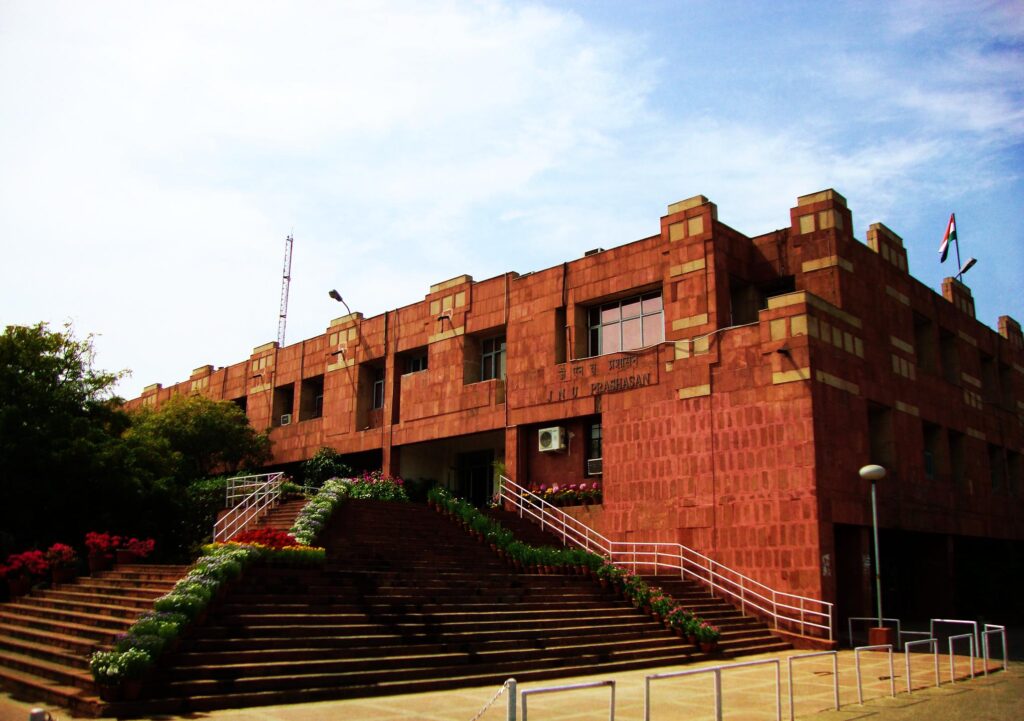New Delhi: A major blow was dealt to the aspirations of 13 candidates who were shortlisted for the post of associate professor in the Centre for Media Studies (CMS) at the premier Jawaharlal Nehru University when a candidate whose name did not even figure in the list was reportedly ‘selected’ for the position.
Though the university has not officially announced the selection of Shuchi Yadav, who is the sister-in-law of a joint secretary in the University Grants Commission, Khabri Baba has received confirmation that she has joined the CMS faculty.
Following the development, one of the candidates wrote a strong note of protest to JNU vice-chancellor M. Jagadesh Kumar, who was part of the five-member panel which conducted the video interviews on July 16. While all the 13 shortlisted candidates appeared online, the ‘selected’ candidate appeared physically for the interview.
A list issued by the recruitment cell of JNU on June 30 identified the shortlisted candidates as Krithika Subramonian, Bachha Babu, Akanksha Shukla, Anjani Kumar Jha, Tasha Singh Parihar, Rachna Sharma, Shiju Sam Varughese, Sanjay Singh Baghel, Madhu Babu Jangili, Uma Shankar Pandey, Vartika Nanda, Sujith Kumar Parayil (who is currently an assistant professor at CMS) and Shantesh Kumar Singh.
On July 16, the interviews were conducted by a panel comprising JNU VC Jagadesh Kumar; Anil K. Roy of Mahatma Gandhi International Hindi University, Wardha; director general of Indian Institute of Mass Communication, Sanjay Dwivedi (a case against whose appointment is in the Delhi high court); Hiraman Tiwari of CMS, JNU; and B.K. Kuthalia, former VC of Makhanlal Chaturvedi National Journalism University, Bhopal (who was probed by the Madhya Pradesh government in 2019 for alleged financial and other irregularities).
The complainant wrote to Kumar and the JNU registrar about the anomaly pertaining to the ‘selected’ candidate’s appearance for the interview. “Till that (July 16) morning, there was no mention of (the candidate) in the list of candidates to be interviewed,” the complaint said, adding that on July 25 he was informed by a WhatsApp message that this candidate, who parachuted into the selection process, has been appointed to the said post.
‘Selected candidate does not fulfil criteria’
The complaint charged that “according to public information” made available through a website, the ‘selected’ candidate does not meet the minimum requirement of eight years of teaching experience in a post comparable to an assistant professor.
He elaborated that “she joined teaching in 2014 in Galgotias University” according to information available on that university’s website. “According to this she does not have NET qualification either,” he wrote, adding that she has completed her as PhD recently as 2018.
The complainant asked why this candidate was invited for the interview though she was not on the shortlist. Stating that academicians look up to an institute like JNU for inspiration, he added, “When a person is appointed without minimum qualification, it is a huge demotivation for the other candidates.”
He also insisted that the selected candidate does not have the necessary number of research papers or publications in her name to qualify for the post. “Clearly, she did not fulfil the criteria for appointment and that is why her candidature was pushed separately because the online form system would have rejected her for lack of qualifications in the screening stage itself,” he said.
Why waste other candidates’ time and effort?
Khabri Baba spoke to another candidate who questioned why JNU undertook the entire exercise if it had already made up its mind on the appointment. “Applying for the post takes up a lot of time and effort. You have to submit a large number of documents. It takes several days to prepare for this. Also, if they had already decided who they wanted to select, then why did they waste the time and energy of so many candidates? Many took time off from their busy schedules to prepare and appear for the shortlisting process and the interviews.”
She said ideally, universities should do away with the interview process to curb arbitrary appointments. She said universities should use the UGC’s academic performance indicators (API) for evaluating and appointing faculty members. The API requires all faculty members at Central universities and Central government-funded colleges to do research and publish – in addition to teaching and administrative duties – in order to benefit from the Career Advancement Scheme (CAS).

